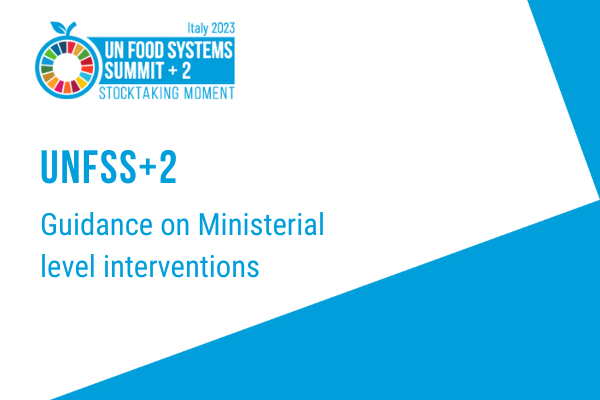SEED FUNDING JOINT PROGRAMMES
Rwanda
Resilient Food Systems: Enhanced Value Chain and Post Harvest Management





PROJECT TITLE | Resilient Food Systems: Enhanced Value Chain and Post Harvest Management |
| Context | Food systems transformation is embedded in several national policies in Rwanda, including the National Transformation Strategy, the Strategic Plan for Agriculture Transformation, the National Environment and Climate Change Policy. In 2021, Rwanda developed its National Pathway, which highlights four priority areas for the country towards 2030: ensuring food security and nutrition for all, while increasing demand for healthy diets; enhancing the environmental sustainability of food systems; improving livelihoods for farmers and all workers in food systems while building resilience to shocks; promoting inclusion of women and youth in food systems, including through enhanced financial opportunities. |
| PUNOs | FAO, WFP, IFAD |
| Contribution to SDGs | SDG 1 No Poverty; SDG 2 Zero Hunger; SDG 8 Decent Work and Economic Growth; SDG 13 Climate Action |
| Contribution to other SDG transitions | Decent Jobs and Universal Social Protection; Energy Access and Affordability |
| Duration | July 2024 – June 2025 |
| Expected financial leverage | $ 3,070,000 |
| Alignment with SG Call to Action | Policy integration; Food systems governance; Research, data, technology and innovation; Inclusive and participatory design; Private sector engagement |
| Outcomes | The JP leverages on improved post-harvest management as a strategic approach to simultaneously reduce food loss, improve incomes, and boost food availability. The JP promotes the economic integration of youth-led MSMEs and builds linkages with partners and initiatives focused on nutrition and food security to connect the dots between food production, processing and consumption. |
| Partners |
|
| Outputs |
|
Guidance on Ministerial level interventions from the floor in the UNFSS+2 Plenary Sessions

Ministers that are interested to deliver interventions from the floor during the UNFSS+2 Stocktaking Moment Plenary Sessions are kindly invited to register for a specific Plenary. Interventions will be prioritized for Ministers that are not involved in any panels and do not have speaking slots in any other session (Leadership Dialogues, Special Events, High-Level Session, and panels of Plenary Sessions). Please note that due to the large number of Ministerial level Delegates one registration per country will be considered in a first-come first-served basis.
A total of 90 minutes is allocated for interventions from the floor in each of the three Plenary of 25 and 26 July. The time allocation per each intervention will be set to 2½ minutes with a buffer time of 30 seconds to conclude the intervention. A countdown clock will be visible in the room and at the end of the 2½ minutes, it will alert the speaker on the remaining time to close the intervention. At the mark of the third minute the Moderator will ask the speaker to conclude and will pass the floor to the next pre-registered intervention.
Pre-registration for interventions is open until Thursday 20 July 2023 at 18:00 Rome time using the following link: https://rebrand.ly/UNFSS2STM
For more technical information on the Plenary Sessions, please contact the following colleagues:
Plenary Session 1: Food Systems Transformation in Practice - Successes, Challenges and the Way Forward
Halima Hodzic ([email protected]) and Paul Kiernan ([email protected])
Plenary Session 2: Reversing the food and hunger crisis: building resilient food systems
Susana Rico ([email protected]) and Sarah Piccini ([email protected])
Plenary Session 3: Mobilizing means of implementation for food systems transformation
Manuela Rizza ([email protected]) and Valentina Polacchi ([email protected]).
